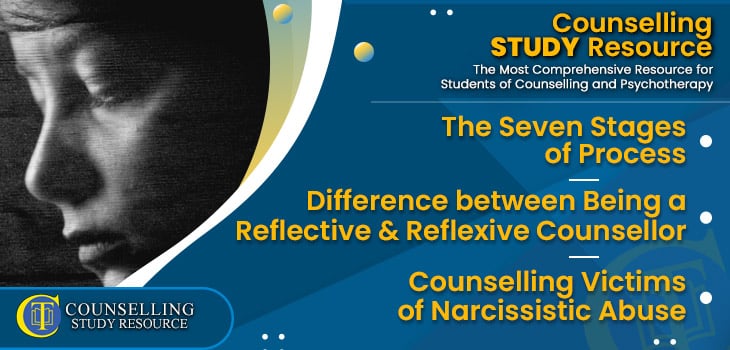See Counselling Skills Used in Real Sessions by Qualified Therapist
Real Sessions – Real Presentations – Real Skills
Gain the competence and confidence to use counselling techniques effectively!

In Episode 229 of the Counselling Tutor Podcast, your hosts Rory Lees-Oaks and Ken Kelly take us through today’s three topics:
The Seven Stages of Process
Carl Rogers’ seven stages of process are an important piece of theory within person-centered therapy. In this section, Rory and Ken discuss some of the key things to think about when working with the seven stages:

Real Sessions – Real Presentations – Real Skills
Gain the competence and confidence to use counselling techniques effectively!
Reflection and reflexivity are two very closely linked words that are both equally as important as each other when it comes to improving yourself and your practice.
The key points of this discussion include:

On-demand access to a rich lecture library covering theory, skills, and professional development for counselling students—Mapped to the UK awarding body criteria
“The Student Library has been BRILLIANT, I can’t recommend it enough!
It has been a lifeline in helping me prepare for practice and my first clients. If you’re considering it, go-for-it, it’s absolutely worth it!”
Kelly – Graduated and now in practice.
In this week’s ‘Practice Matters’, Rory speaks with Amy Launder on working with survivors of narcissistic abuse.
The main points of this discussion include:
The Seven Stages of Process

Get on-demand Certified CPD that is implementable in your practice
